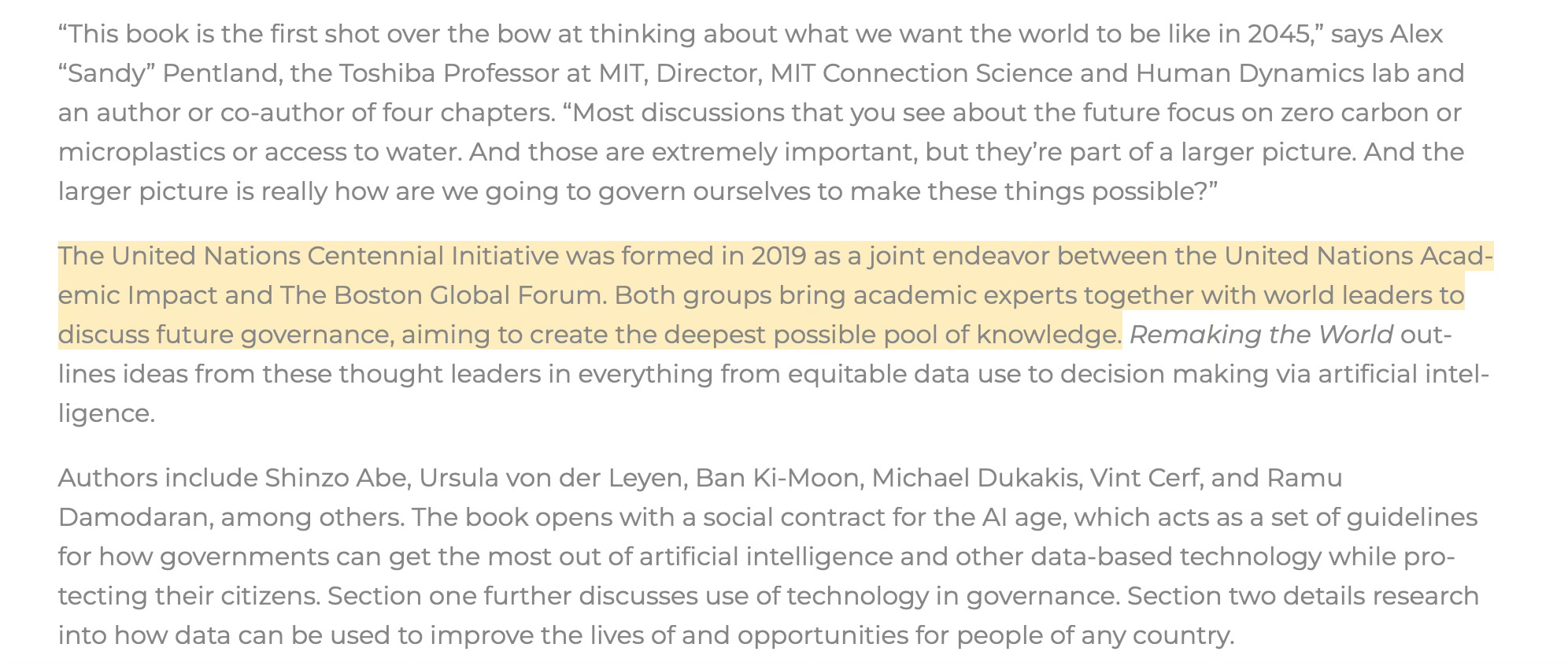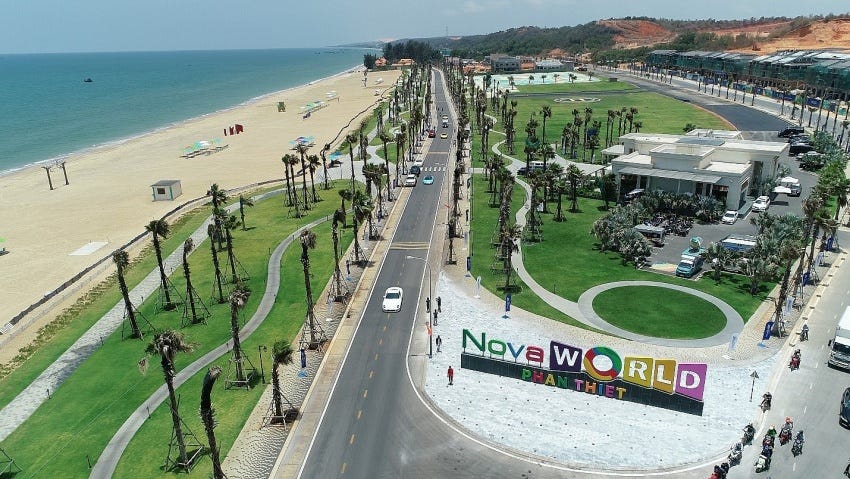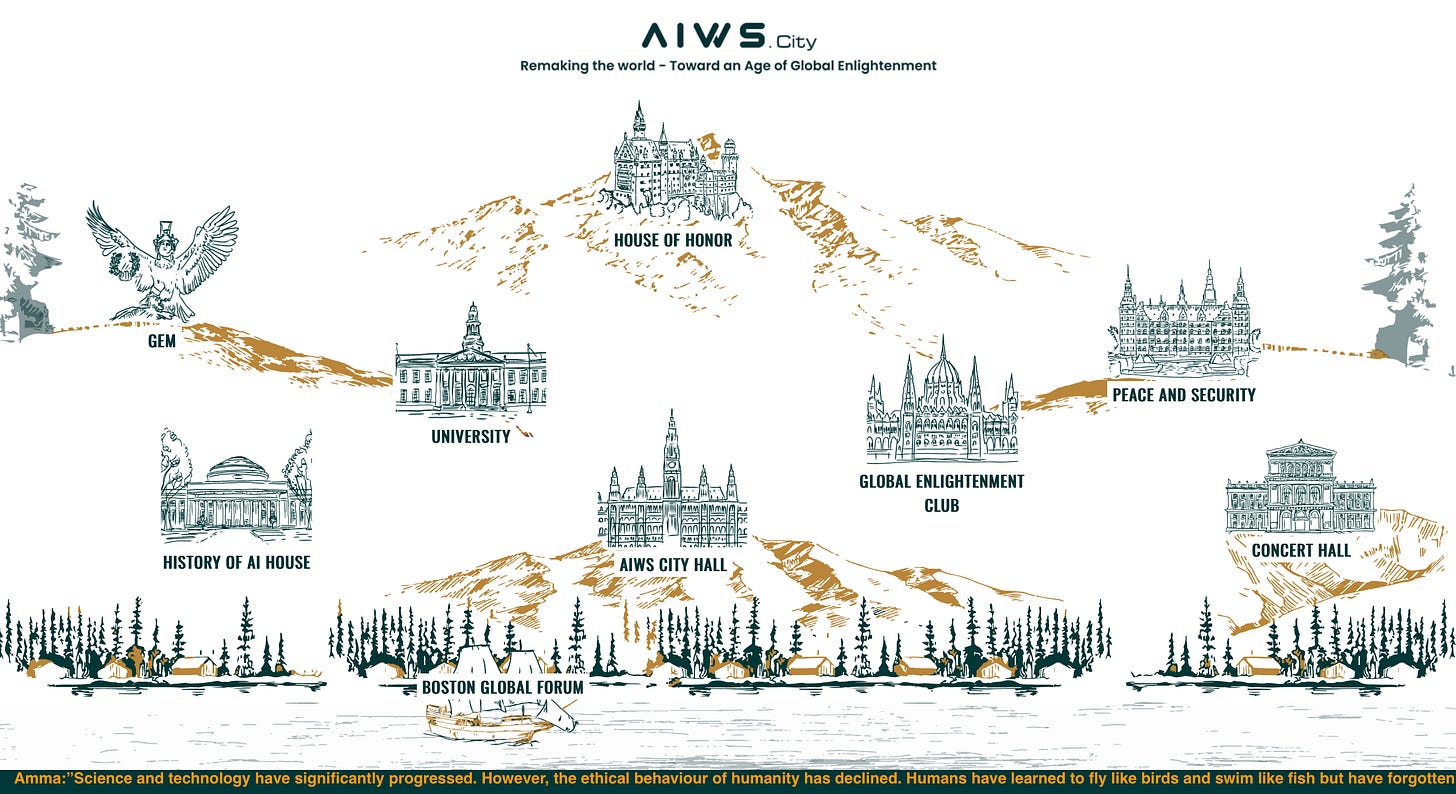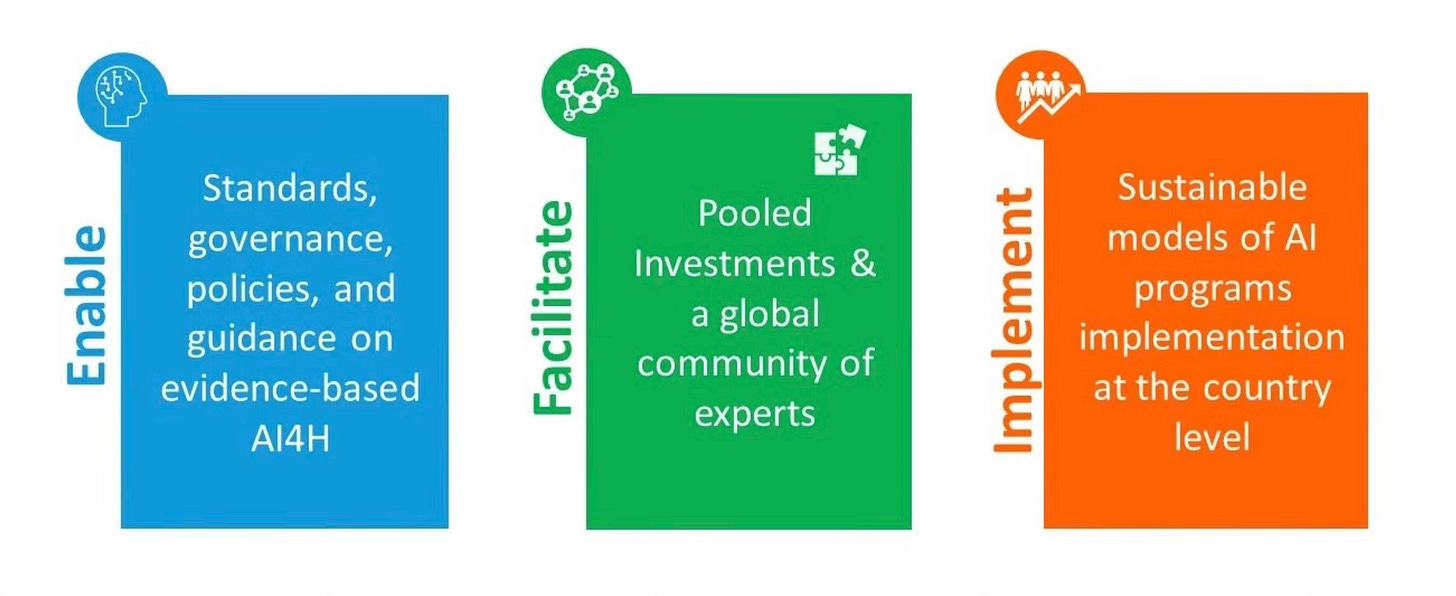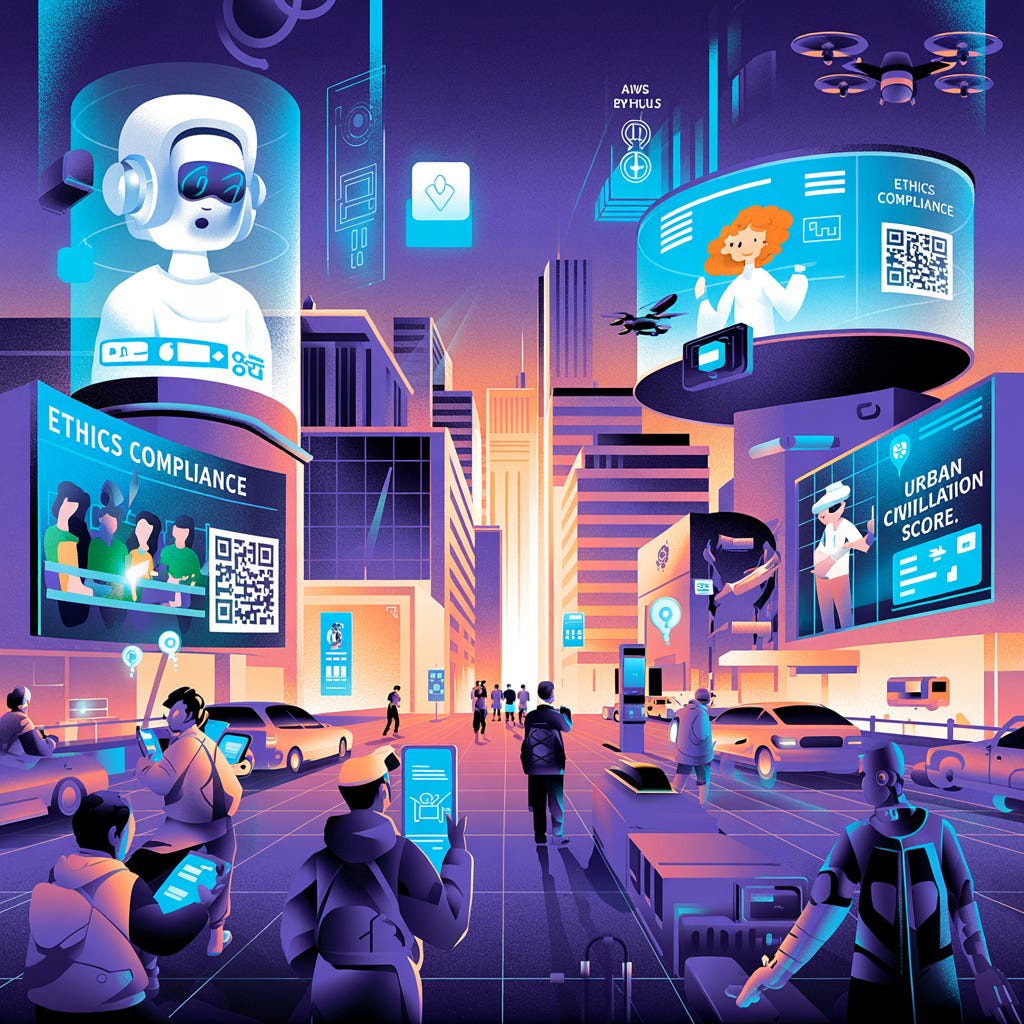The UN’s AIWS Vision and Its Constitutional Risks: Technocracy Versus American Sovereignty
The UN Centennial Initiative and AIWS: A Global Governance Blueprint
The United Nations’ Centennial Initiative, launched in partnership with the Boston Global Forum, aims to reshape global governance by 2045 through the Artificial Intelligence World Society (AIWS). AI World Circle Chapters are now open.
SSRC- SOCIOTECHNICAL SYSTEMS RESEARCH CENTER
“We bring together faculty, researchers, students and staff from across MIT to develop collaborative, holistic and systems-based approaches for the study of the high-impact, complex, sociotechnical systems that shape our world.” (For More on the Tavistock origins of SocioTechnical Systems see the link to my livestream below.)
This vision, outlined in documents like the Social Contract for the AI Age, proposes a transnational framework where AI and blockchain technologies manage resources, enforce ethics, and mediate human interactions. Core components include:
AIWS City: A pilot "virtual digital city" in Vietnam designed to test AI-driven governance, emphasizing ISO standards for urban ethics, blockchain validation, and a "sharing economy".
AI and Democratic Values, December 12, 2020
AIWS City is an online digital city that brings together the cultural, historical, creative, innovative, and artistic values of humanity. AIWS City is built on the foundation of AI technology and blockchain. AIWS City will bring together world leaders, including thinkers, political leaders, creators, innovators, and educators, to help them promote a more civilized and prosperous world, one based on fundamental human values. AIWS City will be guided by the principles of the Social Contract for the AI Age. It will be a platform to exchange ideas and promote values.
AIWS City will connect with cities that are centers of science, technology, culture, history, architecture, art, and economic vitality and that epitomize the best of civilization, including Boston, New York, Athens, Rome, Paris, Tokyo, and Saint Petersburg. It will connect with and draw upon the knowledge of the preeminent figures in these cities. It will also draw from major thinkers in top universities in the Boston area and elsewhere.
AIWS City will connect with UNESCO World Heritage scenic areas like Yellowstone and Victoria Falls; museums like the Louvre and the Hermitage; leading symphony orchestras like the Vienna Philharmonic and Boston Symphony Orchestra; AIWS Palace will connect with historic palaces such as Versailles and Windsor, and host prestigious events. Today, AIWS Palace is hosting the AI and Democratic Values Forum and the Ceremony to honor World Leader for Peace and Security Award 2020 to President of the European Commission Ursula von der Leyen.
AIWS City will have pioneering initiatives in higher education in the application of AI and Blockchain. The AIWS University will be a place of lifelong learning, deep reflection, and personal growth and recognition, while providing the opportunity to study with the world’s great professors. As part of AIWS University, there will be AIWS Innovation Labs dedicated to fostering values and ideas, drawing from the world’s leading technology and cultural innovation centers.
Each resident of AIWS City citizen will have a Digital Home for storing and processing personal data, and will work with others to build the AI World Society, a society dedicated to improving the lives of all through innovative and prudent applications of AI. At the start, the leadership of AIWS City will come from the Boston Global Forum, the Michael Dukakis Institute and Mentors of AIWS Innovation Network, expanding later to thought leaders from around the world.
The technology partners for AIWS City are Google and Beowulf Blockchain. In fact, today’s conference is being conducted using Beowulf Blockchain’s Quickom technology platform.
I want to thank Beowulf for its support and for its work in constructing AIWS City.

January 9, 2021: AIWS Palace, AIWS University will officially operate.
September 1, 2021 Digital Home will officially serve all AIWS City citizens to build their own digital homes. On this day, the houses of honor of Michael Dukakis, Vint Cerf will be opened also.
Not only creating an advanced living and working environment on the internet, AIWS City also connects and creates a modern smart urban area in NovaWorld Phan Thiet, together with the World Leadership Alliance-Club de Madrid. AIWS City contributes to The United Nations Initiative 2045, a model of the city of human being in 2045.
Global Enlightenment Ecosystem: A network of "innovation communities" that prioritize collective decision-making over national sovereignty, leveraging AI to synthesize policies across borders.
Global Enlightenment Mountain- (GEM) – THE NEW SILICON VALLEY FOR GLOBAL ENLIGHTENMENT
Posted on April 16, 2023
The Global Enlightenment Mountain (GEM) program is a model of the new Silicon Valley, designed to make significant achievements in building the Age of Global Enlightenment. As AI technology continues to advance and develop, GEM is an initiative in creating a more transparent, accountable, and ethical global tech ecosystem.
One of the key initiatives of GEM is the creation of AI Assistants, including T-Lead, Enligh-T, T-Kindness, and Biotic AI. These intelligent assistants are designed to augment human abilities, improve our quality of life, and ensure their ethical and responsible usage, setting an example of ethics and responsibility for the technology industry.
T-Kindness: An AI assistant with empathy T-Kindness is an AI assistant that is more than just an effective tool. It is a sincere and honest friend that understands your interests, psychology, habits, and personality. This assistant supports you in everything from work to love and health care, always there for you every time and everywhere. T-Kindness helps you build good character, right behavior, and nobility in times of failure or difficulties, as well as success, victory, and glory.
Enligh-T: AI assistant preserving the thoughts of outstanding leaders Enligh-T is an AI assistant that simulates the thought processes and decision-making of outstanding leaders, preserving their great minds for future generations. By absorbing and learning from these leaders, Enligh-T helps to ensure their legacies last for eternity.
T-Lead: AI assistant for decision makers T-Lead is an AI assistant that helps political leaders make informed decisions that are good for the people and society. By understanding the psychology and emotions of the leader, T-Lead provides empathetic support and acts as a trustworthy friend. T-Lead also learns from the leader’s good qualities and preserves them for the next generation.
These AI Assistants are just the beginning of the GEM program, which is focused on developing a range of innovative technologies that promote global enlightenment. GEM is committed to ensuring that these technologies are used in a manner that is consistent with human rights and values, and that they benefit society as a whole.
The GEM program is a unique opportunity to shape the future of AI technology and to create a more ethical and democratic global tech ecosystem. By working together, we can harness the power of AI to solve some of the world’s most pressing problems and to create a more enlightened and prosperous future for all in the Age of Global Enlightenment.
GEM is the first step in building a new Silicon Valley, one that prioritizes ethics, innovation, and well-being for all. As we embark on this journey, we invite everyone to join us in creating a brighter, more prosperous, and more ethical future for all.
Learn more about Global Enlightenment Mountain - GEM here.
GEM Economy: refers to a concept, rooted in “Enlightenment” principles, that envisions a future where technology, particularly AI, is used to create an inclusive, sustainable, and equitable global economy. as fundamental to achieving the "Age of Global Enlightenment".
GLOBAL ENLIGHTENMENT ECONOMY: A PART OF THE UNITED NATIONS CENTENNIAL INITIATIVE.
“One of pillars of Global Enlightenment Economy is Data Economy, using the power of data and data-driven technologies to promote economic growth and social progress, while also ensuring that these technologies are used in a responsible and ethical manner that meets the standards of the Social Contract for the AI Age and supports the Global Enlightenment Economy. By promoting data exchange, trust frameworks and data-driven solutions for social good, we can foster an inclusive and equitable data economy that benefits all. The United Nations Centennial Initiative recognizes that AI has the potential to transform our economy and society…AI World Society (AIWS), which will bring together governments, the private sector, civil society, and other stakeholders to develop global standards and best practices for the responsible use of AI. Another important aspect of the Global Enlightenment Economy is the promotion of green growth and sustainable development. The initiative calls for the transition to a low-carbon economy, and the development of renewable energy sources.”
Abe Financial AI Protocol―is a framework inspired by the vision and values of the late Prime Minister Shinzo Abe. It provides direction for how financial systems should operate in the age of AI.
CARRYING FORWARD SHINZO ABE’S VISION ― A FINANCIAL AI PROTOCOL FOR ETHICAL INNOVATION AND GLOBAL SECURITY Posted on March 31, 2025
“The Abe Financial AI Protocol …aims to create a financial system that is open and secure, where trust and transparency support innovation. This protocol reflects the idea of “Society 5.0― a society where technology serves people―and embraces the concept of ‘Data Free Flow with Trust (DFFT),’ which Japan has championed on the global stage…
The Boston Global Forum (BGF) also recognizes a groundbreaking project by Professor Alex Pentland, a distinguished BGF Board of Directors member, as an integral component of the “Abe Financial AI Protocol.” Titled “Trusted and Reliable AI Agents: Building the Future of the Consumer Experience in an Agentic World,” this initiative, launched on March 24, 2025, is a collaboration between Stanford University and Consumer Reports. Led by Professor Pentland, the project advances the Tokyo Accord’s vision by developing trustworthy AI agents…”
One Health Integration: Aligning human, animal, and environmental health under AI oversight, as promoted by the WHO’s Global Initiative on AI for Health.
These systems are framed as solutions to global challenges but risk centralizing power in unaccountable technocratic institutions.
Clash With Constitutional Principles
The U.S. Constitution enshrines individual rights, federalism, and limited government—principles directly threatened by AIWS’s supranational ambitions:
Erosion of Sovereignty:
AIWS’s “digital government” model envisions governance “not limited by geographical space”, bypassing Congress and state legislatures. For example, blockchain-based voting systems could override the Constitution’s Electoral College mechanisms, centralizing authority in algorithms vulnerable to manipulation.Surveillance and Privacy Violations:
AIWS relies on mass data collection to optimize resource allocation, echoing the WHO’s AI health initiatives that track biometrics globally. Such systems conflict with the Fourth Amendment’s protection against unreasonable searches, as seen in U.S. cases where facial recognition misidentified minorities. The AI Social Contract Index, which scores nations on compliance with AI ethics, could pressure the U.S. to adopt privacy-undermining practices to meet “global standards.” ARTIFICIAL INTELLIGENCE and DEMOCRATIC VALUES
The AI Social Contract Index 2020 (AISCI-2020)Rule of Law vs. Algorithmic Governance:
The Constitution mandates transparency in governance, but AIWS’s “unexplained AI” systems (e.g., Holochain’s reputation protocols) operate through opaque algorithms. As noted in Foreign Policy, these tools enable “digital authoritarianism,” where decisions about loans, policing, or healthcare are made by unaccountable code—violating due process under the Fifth and Fourteenth Amendments.Collectivism Over Individual Rights:
The AIWS model emphasizes global standards for AI development, like transparency, accountability, and inclusivity. These are enforced through international agreements, which by nature require nations and individuals to conform to a collective framework. For example, if the UN pushes for AI to reduce inequality—a common UN goal—policies might prioritize resource distribution over individual freedom to accumulate wealth. Imagine AI-driven taxation systems that automatically redistribute income to achieve “global equity.” This sacrifices personal economic liberty for the group’s benefit.The focus on “ethical AI” often involves centralized oversight. This could look like, UN-led councils or regulatory bodies deciding what’s “ethical”, which could mean restricting individual rights to privacy or free expression if they conflict with collective safety. AI surveillance might be justified to combat misinformation or terrorism, overriding personal data control. The UN’s history suggests it might favor such trade-offs, framing them as necessary for the “greater good.” AIWS’s vision of a “connected”, “harmonious” world implies interdependence over independence. In practice, this could look like AI systems managing resources—energy, healthcare, education—on a global scale, reducing individual choice in favor of optimized group outcomes. Picture an AI dictating your carbon footprint limits to meet UN climate goals, curtailing your freedom to live as you please.
AIWS rhetoric often includes “human-centric” principles. But in execution, these rights are often subordinated to collective priorities. When push comes to shove—say, in a crisis like a pandemic or climate collapse—the UN tends to lean on utilitarian logic: what benefits the most people wins. AI, with its ability to model and enforce large-scale solutions, amplifies this bias. It assumes the group’s needs are objectively definable, often by “elites” or algorithms, sidelining dissenters. Individualists might argue it erodes self-determination, turning people into cogs in a global machine. This clashes with the Constitution’s protections for private enterprise and personal autonomy, effectively enabling rationing under the guise of “equity”.
Case Study: AIWS City and Constitutional Bypass
The AIWS City pilot in Vietnam exemplifies these risks:
Digital Currency Mandates: Residents must use blockchain-based payments, overriding the Federal Reserve’s constitutional authority to regulate currency.
Ethics Surveillance: ISO standards for “urban civilization” enforce behavior monitoring, contradicting the First Amendment’s free speech protections.
Crisis Control Algorithms: AI systems “limit negative impacts on the real world” by suppressing dissent, akin to China’s Great Firewall.
Defending Constitutional Safeguards
To counter these threats, policymakers must:
Reject Supranational AI Governance: Oppose treaties that subordinate U.S. law to UN AI frameworks, as proposed in the AI International Accord.
Reject AI Bill of Rights: Repeal the White House’s 2022 national guidelines.
Strengthen Federalism: Empower states to regulate AI within constitutional bounds, resisting centralized models like AIWS City.
Conclusion: Sovereignty in the Algorithmic Age
The UN’s AIWS vision, framed as progressive, threatens to replace the Constitution’s balanced governance with a technocratic monoculture. As AI ethicist Dan Caprio warns, unchecked AI systems risk “eroding civil liberties under the pretext of innovation.” Preserving American democracy requires vigilance against globalist frameworks that prioritize algorithmic efficiency over individual sovereignty.
“The Constitution is not an instrument for the government to restrain the people, it is an instrument for the people to restrain the government.”
— Patrick Henry





